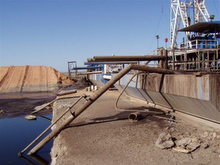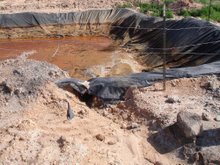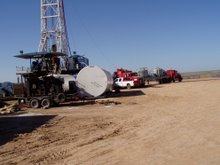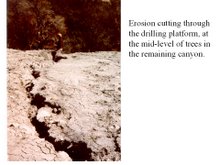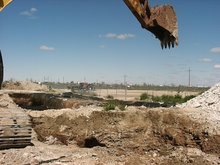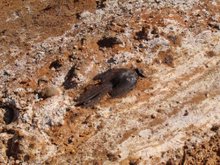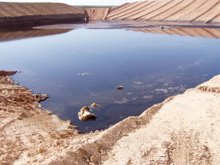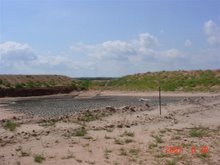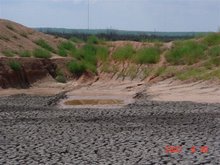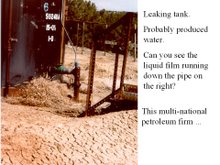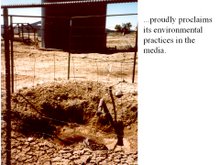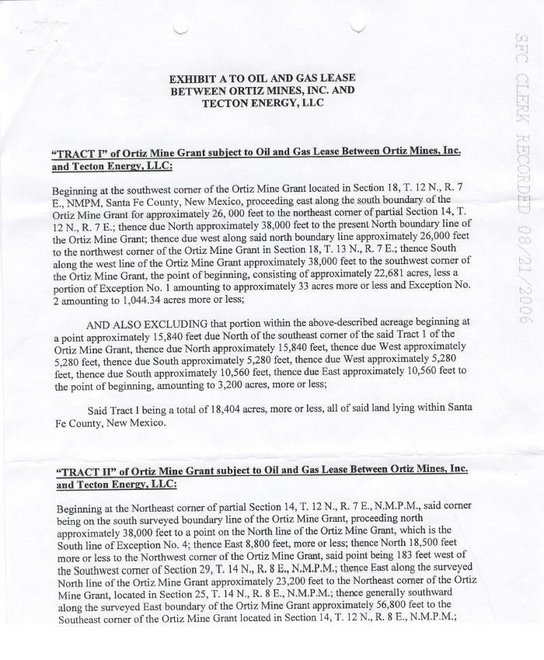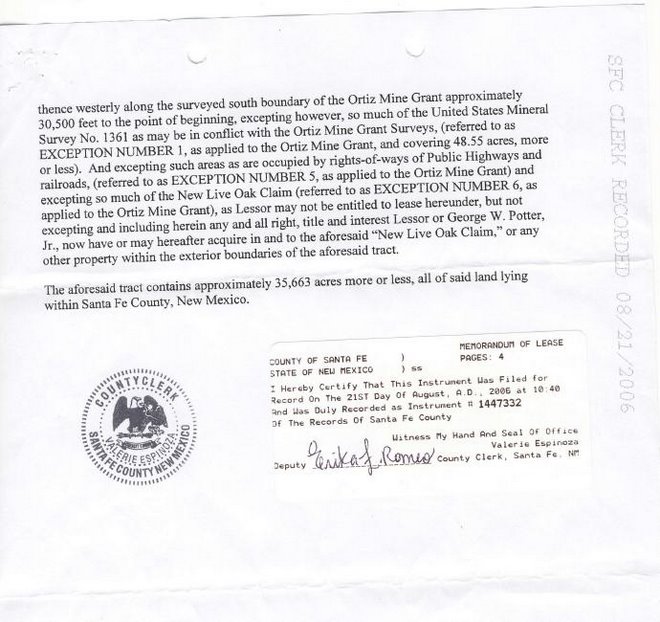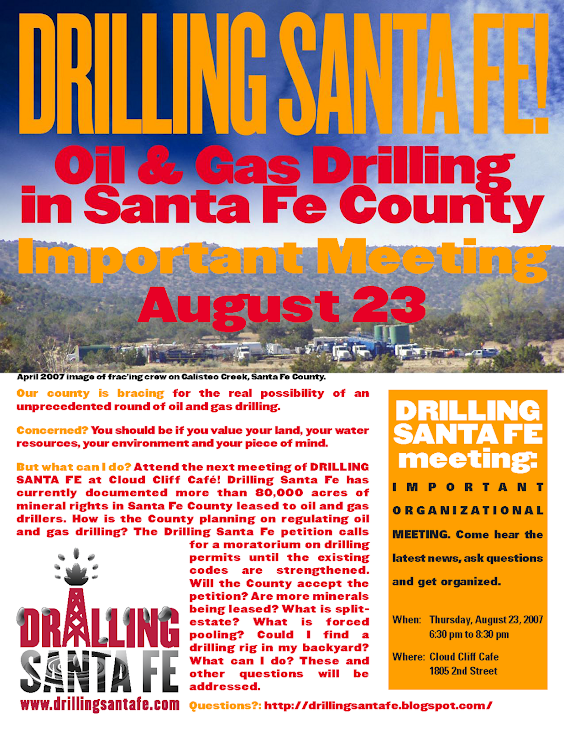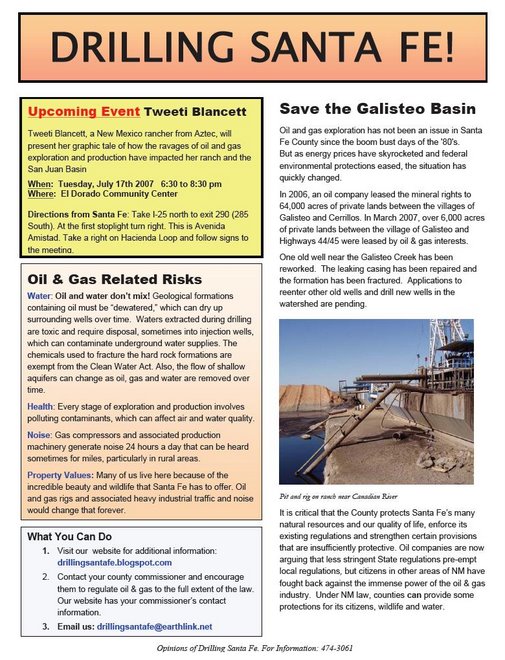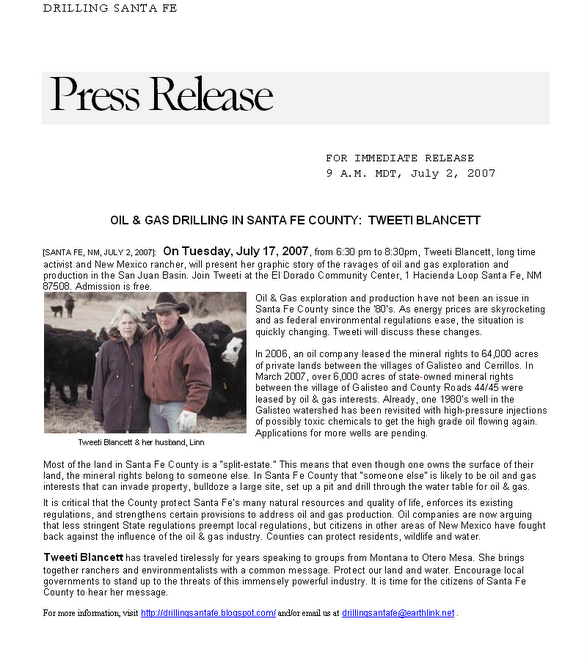Rio Grande Sun
By Joe Crawford
SUN Staff Writer
Published: Thursday, December 31, 2009 10:51 AM MST
"Proposed legislation drafted by a state senator from Farmington would punish Rio Arriba County for its new oil and gas ordinance.
Sen. William Sharer (R-Farmington) introduced a bill Dec. 15 that would penalize counties and municipalities with local laws that have an “onerous effect on extractive industries.” The legislation would keep those local governments from receiving funding from severance tax bonds, which makes up a significant portion of the state’s capital outlay appropriations.
Sharer said the legislation is aimed directly at Rio Arriba and Santa Fe counties, which have enacted ordinances the last two years to further regulate the oil and gas industry.
“If you don’t want the production, why should you benefit from the proceeds?” he said.
Sharer’s law would apply to oil and gas drilling as well as mining, according to the bill.
The Rio Arriba County Commission passed an oil and gas ordinance in May in response to plans by Texas-based Approach Resources to drill on 90,000 acres of mineral rights south of the Tierra Amarilla. Drilling had never occurred in the area before. The Commission postponed the first applications from Approach at a meeting Tuesday in Tierra Amarilla.
The County ordinance requires drilling companies to receive approval from the County before drilling new wells, but the County only monitors drilling issues on the ground surface, such as wells proximity to homes and water wells. County Planning and Zoning Director Gabriel Boyle has said County staff does not have the training or equipment to monitor anything that happens below ground.
The state Oil Conservation Commission, the state entity responsible for monitoring oil and gas drilling, would be responsible for determining which laws are onerous. The bill defines the onerous laws as those that “would increase the cost of either drilling or operating a well by fifty percent or more over the drilling or operating costs that would be incurred without the ordinance.”
When pressed for specific issues with the counties’ ordinances, Sharer said he had not analyzed the two counties’ ordinances. Sharer said he was opposed to any local regulations that go beyond what was required by the state.
“If you want environmental protection, then we can all live in a mud hut and freeze and die at age 45 with no teeth,” Sharer said. “What I’m looking for is some balance.”
Rio Arriba County Commissioner Alfredo Montoya said he was not concerned the law would cause the County any problems.
“We’ve never been about prohibiting the industry from doing business in our County,” he said.
Rio Arriba’s oil and gas drilling is based in the western part of the County which abuts San Juan County but the new ordinance applies primarily to drilling in the eastern portion.
State Sen. Richard Martinez (D-Española) said he was under the same impression as Montoya. Martinez said he is not in support of local laws that go far beyond what is mandated by the state, but the County’s ordinance is not that stringent.
“I had thought that the oil and gas industry and the County had reached a consensus,” he said.
County Manager Lorenzo Valdez said he doubted the bill would have enough support to become law.
Sharer has received $1,000 in campaign contributions from the oil company Chevron since 2006. He was also given $575 in October by the American Legislative Exchange Council, which has publicly lobbied the United States to end its moratorium on offshore drilling." Link>>>>

~~~
About the bill:
2010 Regular Session
SB 8
NO SEVERANCE TAX PROJECTS IN CERTAIN COUNTIES
Sponsor: William E. Sharer




